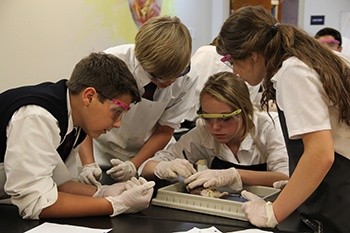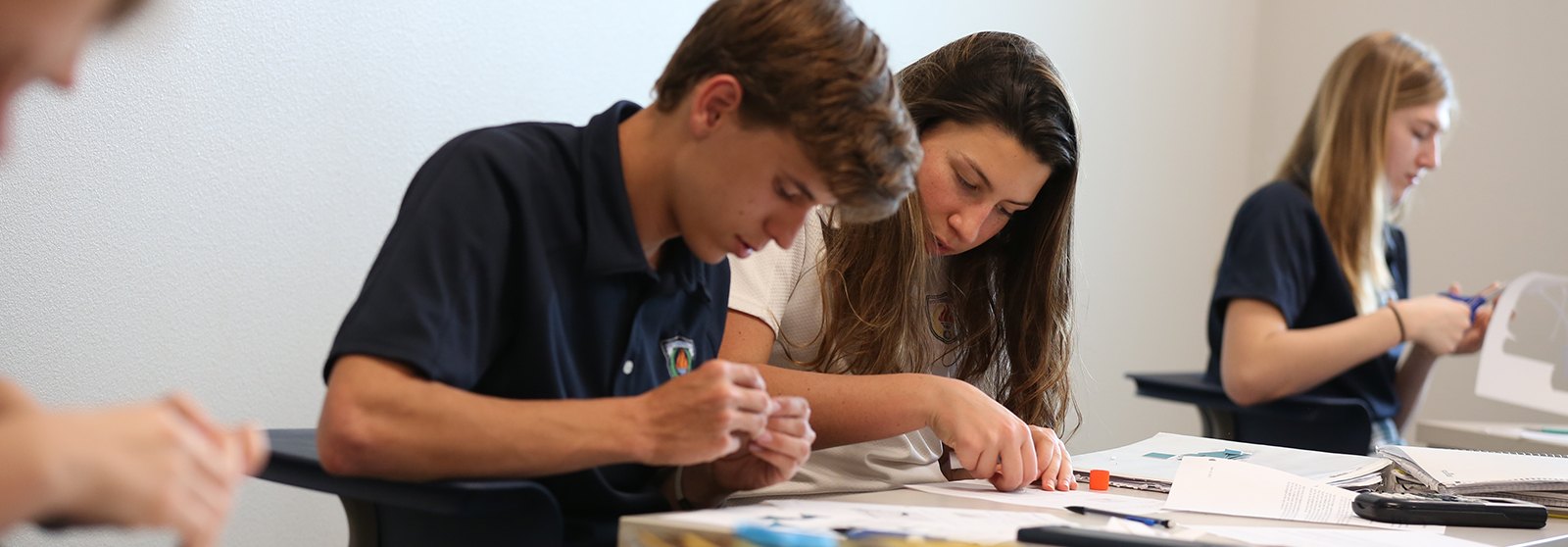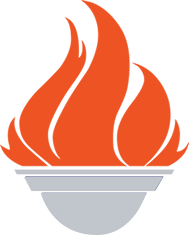Rhetoric School (9th–12th Grade)
 Ninth through twelfth grade at The Geneva School is referred to as the rhetoric school, because during these years, the liberal art of rhetoric is the most emphasized from among the other verbal arts. As the fundamental skill of speaking and writing, it is taught, practiced, and refined within and throughout every subject and class. Relying on the skills of grammar and dialectic, rhetoric is the skill of finding the best means of persuasion in order to lead others toward what is true, good, and beautiful. Speech, whether written or spoken, is never neutral but always comes from and leads to a particular situation, desire, or vantage point. Therefore, the speaker always has a responsibility to use his or her words to instruct, move, and delight others in ways that are truthful and ethical. More specifically, given our confession of Christian orthodoxy, we believe that Christ himself is the standard of these transcendent ideas and that all of our speech should be rooted in, governed by, and pointing toward him.
Ninth through twelfth grade at The Geneva School is referred to as the rhetoric school, because during these years, the liberal art of rhetoric is the most emphasized from among the other verbal arts. As the fundamental skill of speaking and writing, it is taught, practiced, and refined within and throughout every subject and class. Relying on the skills of grammar and dialectic, rhetoric is the skill of finding the best means of persuasion in order to lead others toward what is true, good, and beautiful. Speech, whether written or spoken, is never neutral but always comes from and leads to a particular situation, desire, or vantage point. Therefore, the speaker always has a responsibility to use his or her words to instruct, move, and delight others in ways that are truthful and ethical. More specifically, given our confession of Christian orthodoxy, we believe that Christ himself is the standard of these transcendent ideas and that all of our speech should be rooted in, governed by, and pointing toward him.
Students in the rhetoric school are old enough to begin to understand that life is not simplistic. It is filled with complexity, nuance, and variation. They are ready to engage in deeper thinking and want to express their thoughts with more accurate analysis and more interesting style. They desire to participate in activities that are meaningful and productive. Due to two hallmarks of our Christian, liberal arts model of education, we not only meet this capacity in our students but we set it ablaze.
First, we take a backward-design approach with our curriculum, beginning with graduated seniors in mind. What skills and ideas should they have? What books should they have read? What theories should they understand? What experiences should they have? What should they love and desire? Answering those questions gives our curriculum intentionality and continuity beginning with K4, but becoming much more detailed and specific in the ninth grade. For example, in our Rhetoric and Christian Thought sequence of classes, ninth graders begin learning how to construct arguments based on Aristotle’s common topics while also learning to understand and explain the arguments of C.S. Lewis in Mere Christianity. This is because when they are in twelfth grade, they will be delivering a speech and writing a thesis that require good argumentation about real world issues that can be supported theologically. Given the desire that our graduates have the ability to do this by actually practicing it, we know that process has to begin much earlier than the twelfth grade.
Second, our teachers are abundantly talented and have a deep conviction about teaching as a vocation. Most of our dialectic and rhetoric teachers have master’s degrees in areas of study that pertain to the content of what they currently teach. A handful of our teachers also have earned doctorate degrees. There is an atmosphere among the faculty of passion for their disciplines and personal care for their students. They understand that they are training students for service in God’s kingdom, and this happens through relational teaching, where highly trained educators serve as models and mentors of faithful thought and practice as Christians. The strength of any curriculum certainly rests on the teachers who implement it, but more than that, at TGS, we would say that our teachers are the curriculum.
Building on a foundation of training in the skills of grammar and dialectic, our students in the rhetoric school are taught according to a purposefully designed curriculum by stellar teachers and are being prepared for a lifetime of learning and serving in God’s kingdom.


